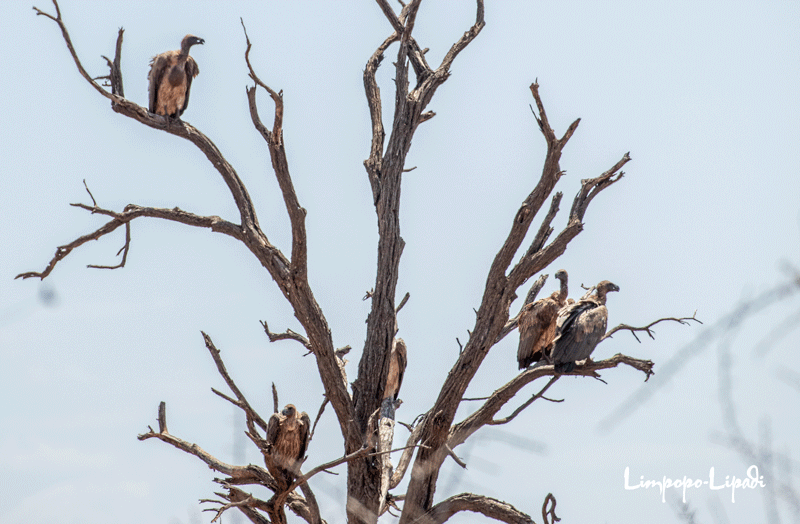Let’s face it, vultures may not be the prettiest of birds. They are often reviled for their looks and have a completely unfounded reputation for being repulsive—even naturalist Charles Darwin describes them as “disgusting”. But these misunderstood birds are truly important in keeping our ecosystem healthy. They are scavengers, who do the dirty work of cleaning up after death, which greatly helps to prevent the spread of disease.

Vultures have extremely corrosive stomach acid, which allows them to consume rotting animal corpses. These scavenged leftovers are often infected with anthrax, botulinum toxins and rabies that would kill other animals. Their significance in our ecosystem is sometimes only truly appreciated once they disappear from it. Tragically, as a result of persecution, poisoning, habitat loss and changes in farming practices, many species of vultures are considered endangered.

At Limpopo-Lipadi, we harbour some species, like the white-backed vulture, the lappet-faced vulture, and the very rare and highly endangered cape vulture. The white-backed vultures use the big trees of the riverine/riparian forest on the Limpopo River for nesting sites. The lappet-faced vultures fly all the way from the Soutpansberg in South Africa, which may seem far, but for them it’s not. It’s difficult to gauge numbers, but luckily we do have a substantial population.

Understandably, we treasure the instances when we see them, rising up on the thermal with their wide wings, spotting carrion from far away. We realise that their presence is an essential part of the balance of our fragile ecosystem.
